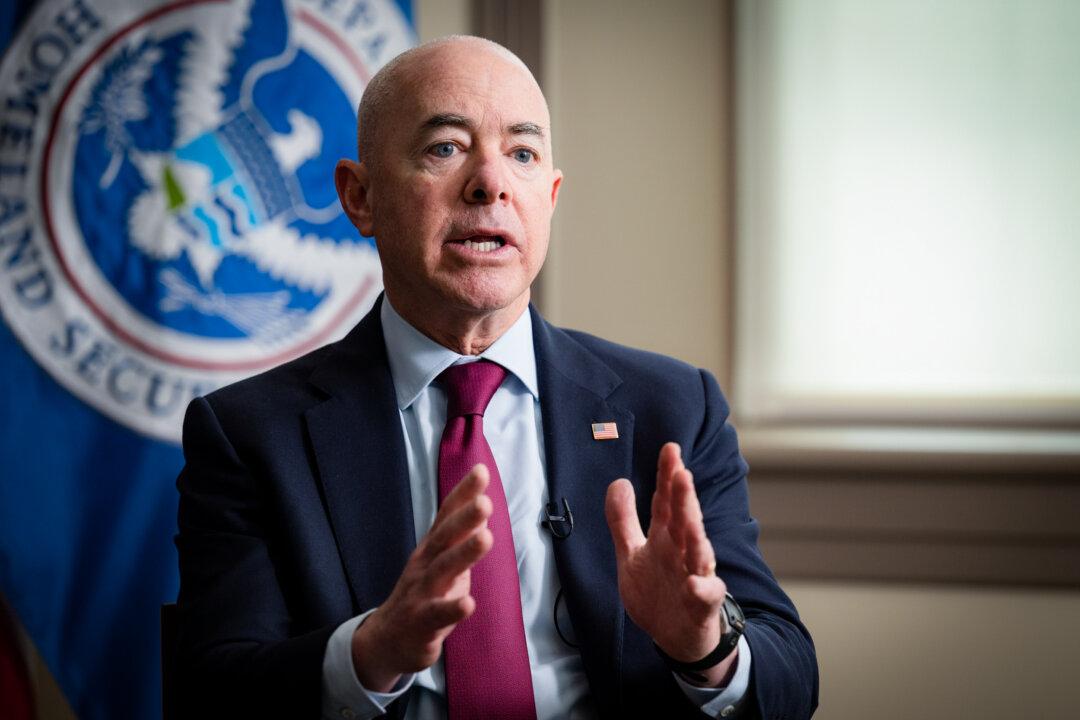The Biden administration is “surging personnel” to the border in anticipation of the expected influx of illegal immigrants in connection with the expiration of Title 42, Homeland Security Secretary Alejandro Mayorkas said on May 10.
That includes more than 1,400 Department of Homeland Security (DHS) personnel, 1,000 processing coordinators, and an additional 1,500 Department of Defense personnel.





